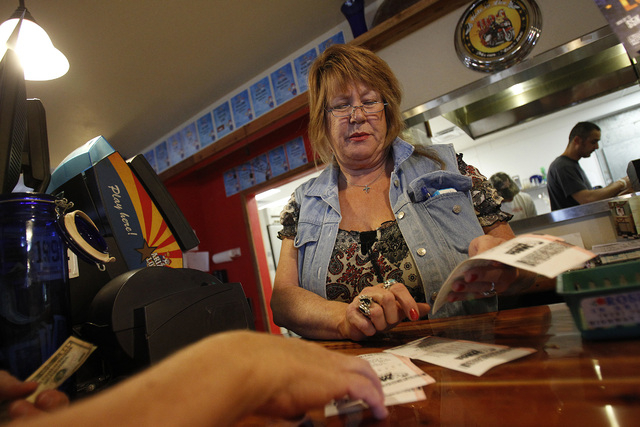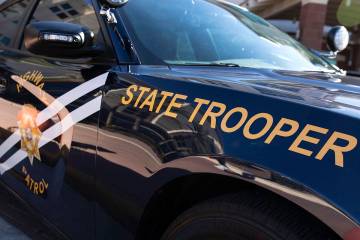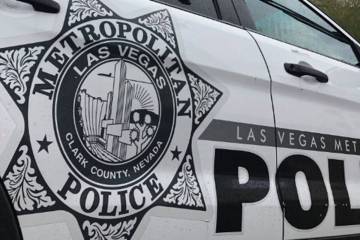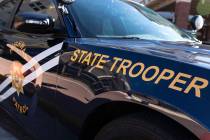Rosie’s Den in Arizona no longer selling lottery tickets
Rosie’s Den, a White Hills, Arizona, bar and restaurant serving truckers, tourists and Nevadans looking to win big, has stopped selling lottery tickets.
There are still three other places within a mile of Rosie’s Den where lottery tickets are sold, including a Chevron station next door to Rosie’s, a nearby Texaco station and the Arizona Last Stop.
The restaurant and bar, a little more than 60 miles southeast of Las Vegas, right along U.S. Highway 93, stopped selling tickets Feb. 28.
“I just can’t do it anymore, it’s not worth it,” Rosie’s Den owner Brad Larsen said.
He said the cafe is downsizing and cutting out lottery sales because it’s no longer financially feasible. Larsen has been in poor health for the last few years and is blind, but he was working 15 hours each day at the restaurant.
“Unless there’s a jackpot, lottery tickets are a break-even at best,” Larsen said, referring to the costs of selling and taxes.
Larsen’s mother, Rosie Larsen, founded the restaurant in 1984, and rebuilt Rosie’s Den with her family in 2013 after it burned to the ground from an electrical fire two years earlier.
Rosie died in May , and Larsen runs the cafe with 14 employees. There used to be 22, but Larsen could not afford the payroll, unemployment and workman’s compensation he had to pay for the extra employees that he needed to sell the tickets.
“The restaurant could not be sustained with the lottery tickets and the extra employees, we had to stop,” he said. “I can handle 14 (workers), but 22 was systematically putting us in the hole.”
Before Rosie’s Den stopped selling the tickets, it had three terminals for selling them, all of which had to be staffed during the run-up to a big jackpot.
Karen Beck, a 12-year veteran at the pit stop, said that when the Powerball jackpot reached $1.5 billion in January, lines at the terminals went out the door. Waitresses who doubled as terminal workers were on their feet for 14 hours at a time.
“It takes a toll,” Beck said. “Yes, the tips are good in the restaurant, but it takes a toll on the body.”
Businesses that sell lottery tickets get to keep a small percentage of the sales — 0.5 percent for Powerball tickets and up to 6 percent for scratch cards and other draw games, but Larsen said the amount his business received wasn’t enough to cover the previous year’s sales tax.
“It’s nothing for a corporation or big business, but when you’ve got a mom and pop it’s impossible,” he said. “I’m not losing the lottery, I’m saving my restaurant.”
Waitresses called the separate area for selling lottery tickets “the vortex.” With usually only two waitresses on staff at a time, someone would miss out on tips if there was a rush for tickets.
“Now none of the girls are going to get stuck in the vortex ever again,” she said.





























